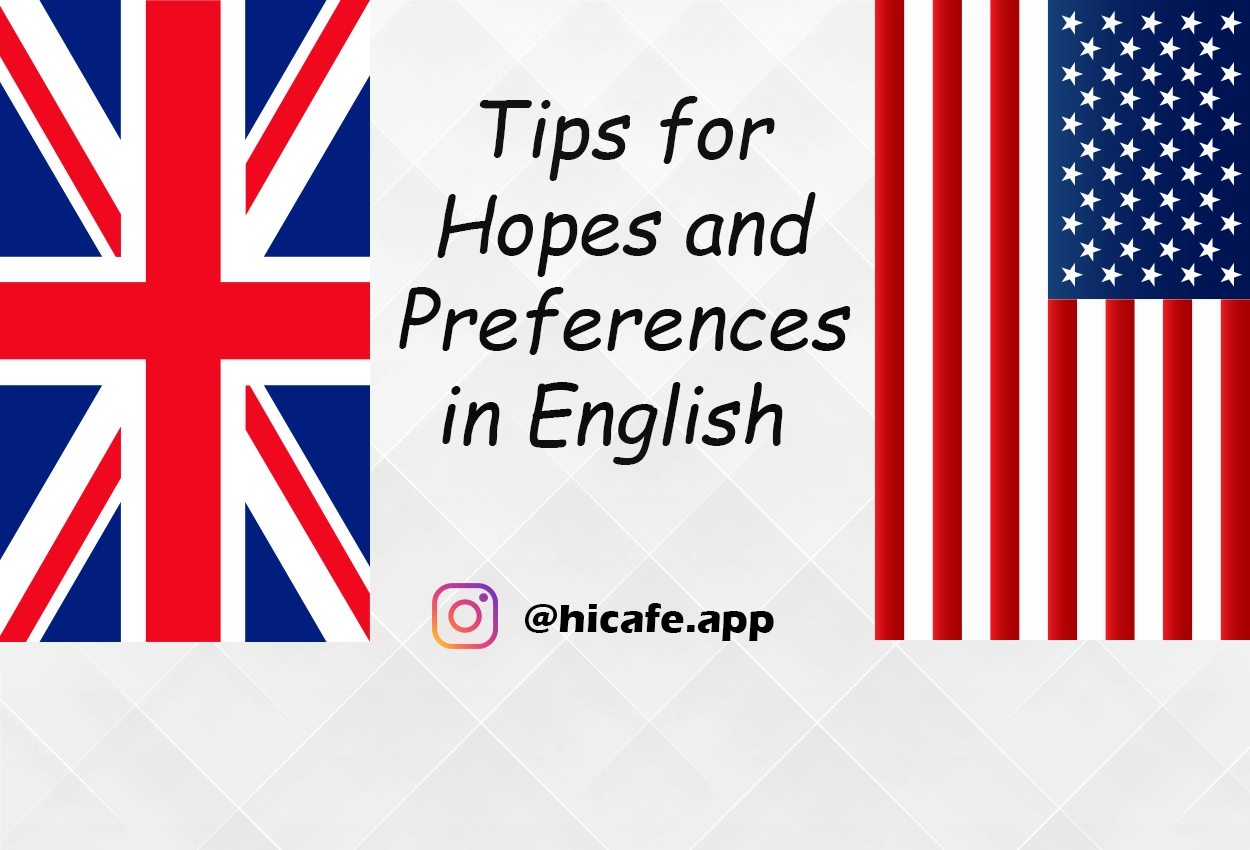In English, there are various expressions and structures that can help you share your hopes for the future and convey your preferences in different situations. This lesson exploresexpressing hope in English.
Previous Conversation Tip Lesson
Advice and Suggestions in English
Expressing hope in English Grammar
There are various expressions you can use to convey your hopes and preferences, either for the long-term future or for the more immediate future.
Hopes for the long-term future
Here are some helpful expressions for discussing what you wish to occur in your life or the changes you’d like to witness.
- In an ideal world, I’d …
In an ideal world, I’d travel the world and learn multiple languages.
- In an ideal world, there …
In an ideal world, there would be equal opportunities for everyone.
- It would be great / fantastic / wonderful if ….
It would be great if we could find a solution to climate change.
- In the long-term, I’m hoping …
Follow either with an infinitive or a “that” clause.
In the long-term, I’m hoping to start my own business.
In the long-term, I’m hoping that I will buy a house.
- I’ve always hoped for (+ noun)
I’ve always hoped for a stable career.
- I’ve always dreamed of …. (+ ing)
I’ve always dreamed of visiting every continent.
Hopes for the near future
- I’m hoping for … (+ noun)
I’m hoping for some good news soon.
- I’m hoping to get …
I’m hoping to get a promotion at work.
- I would like…
I would like to spend a weekend at the beach.
(The short form of “I would like” is “I’d like”.)
Remember: you can follow “I would like / I’d like” with either a noun or a verb.
I’d like a cup of coffee.
I’d like to visit New York.
- I really want… (Using “want” can be impolite unless you are talking to a close friend or family member.)
I really want a new laptop.
- Something I’ve always wanted is…
Something I’ve always wanted is a pet dog.
- I’d be delighted / over the moon if…
I’d be delighted if you helped me with this project.
Remember: the verb following “if” should be in the past tense, as you are talking about a hypothetical situation. This means that it looks like a second conditional sentence.
- What I’d like more than anything else is…
What I’d like more than anything else is a peaceful vacation.”
- On my Christmas wish list is …
On my Christmas wish list is a new game console.
Preferences
- I’d rather have … (+ noun)
I’d rather have a quiet evening at home.
Remember: you can follow this with a comparison:
I’d rather have a quiet evening at home than go out to a noisy party.
- I’d rather you … (+ simple past)
I’d rather you kept this information to yourself.
- I’d prefer (+ noun)
I’d prefer a gift card over a physical gift.
Remember: after “prefer” the preposition is “to”:
I’d prefer some money for the house to tickets for the opera.
- I’d prefer it if you … (+ simple past)
I’d prefer it if you arrived on time.
- ….. would be more suitable / would be better
A practical gift would be better than something decorative.
- If I had a choice, I would go for… (+ noun)
“Go for” means “choose between a number of options.
If I had a choice, I would go for a career in teaching.
- If it’s all the same to you, ….
If it’s all the same to you, I’d like to stay home tonight.
Conclusion
By utilizing the diverse set of expressions provided, you can share your dreams and desires with others in a meaningful and impactful manner, fostering understanding and connection in conversations about the future.
Next Conversation Tip Lesson
Related Conversation Lessons
None
Practice Conversation with HiCafe App
By using HiCafe App, you can join free discussion events and Practice English Conversation online or in-person and improve your verbal skills.
All Conversation Lessons
To see and read all of our conversation lessons, you can visit our Improve English Speaking Skills page.
